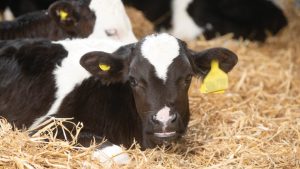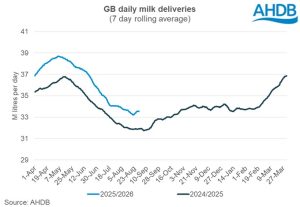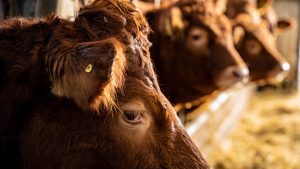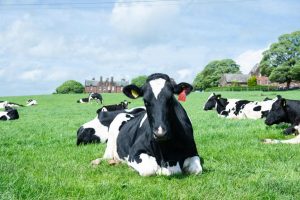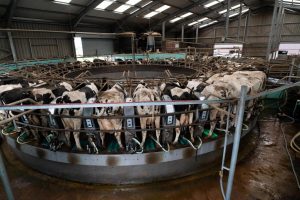
One of the UK’s biggest dairy firms has been fined £1.5m for repeatedly polluting a river near its Cornwall factory and causing local residents to suffer years of noxious smells – but the problems are continuing.
Dairy Crest was sentenced on Thursday at Truro crown court for repeatedly breaching its environmental permit at Davidstow creamery in Camelford. The site, the UK’s largest dairy processing facility, makes Cathedral City cheese, Clover and Country Life.
The court heard how in 2016 Dairy Crest began to install cutting-edge equipment to process whey that could then be sold to baby formula manufacturers and as a probiotic food additive.
However, the equipment did not work as it was meant to. Over several years the company dumped liquid waste, suspended solids and “biological sludge” into the River Inny, raising its nutrient levels and killing trout and salmon. Part-treated effluent also leaked on to nearby land. In one incident, treated effluent from the creamery was released into the River Inny containing a biocide that killed hundreds of fish.
At the sentencing hearing, at which the Dairy Crest CEO, Tom Atherton, was present, the company blamed some of the problems on contractors’ design of new plant equipment.
But Judge Simon Carr was critical of the company’s reaction and said its senior and middle management had been involved at every stage and should have responded better. He noted that some of those responsible for managing the site’s wastewater system felt “intimidated and bullied” and criticised the fact that equipment continued to be used even after so many failures.
While Dairy Crest described the project as an economic failure, the Environment Agency (EA) argued in court that the primary factor behind the offending had been its drive to make good on its investment. Carr said the project’s failure was irrelevant, noting that the company “took a carefully considered commercial decision that turned out to be wrong”.
As well as environmental damage, smells coming from the factory led residents to complain of headaches and stopped them leaving their homes.
One nearby resident, Phil Potter, whose home had been subjected to “horrendous” eggy smells since 2016, told the Guardian he had “mixed emotions” about the sentence. “Now the company are doing a lot of work to put the problem right, it’s just a pity they didn’t do it in the first place.”
Dairy Crest, which is now owned by the Canadian company Saputo Dairy, pleaded guilty in September to 21 charges of breaking the law and was given credit for this by the judge in deciding a sentence. As well as a total fine of £1.52m, it has to pay the Environment Agency £272,747 in costs.
In a statement, Dairy Crest offered “sincere apologies” to those who had been affected and said it had carried out work to rectify the factory’s problems. “Once again, the company would like to express its sincere apologies to those who have been affected. Considerable work has been undertaken to rectify the historic issues to which the prosecution related. The company continues to invest significant resources in the best technology, processes and people to further improve its environmental performance and minimise its impact on the local community.”
But the problems continue. The Environment Agency, which brought the prosecution, said Dairy Crest had completed several improvement projects at its wastewater processing facility at the end of 2021, including installing new types of filters, but these had “not yet fully addressed” all its concerns. There have been a number of permit breaches this year, largely associated with damage on site caused during Storm Eunice.
The Environment Agency says it “remains deeply concerned” about the site’s environmental performance and its impact on the environment and is continuing to monitor it. It is assessing the site’s environmental permit as part of a wider review of the food and drink sector and says that if any changes are made they will be subject to a public consultation.




